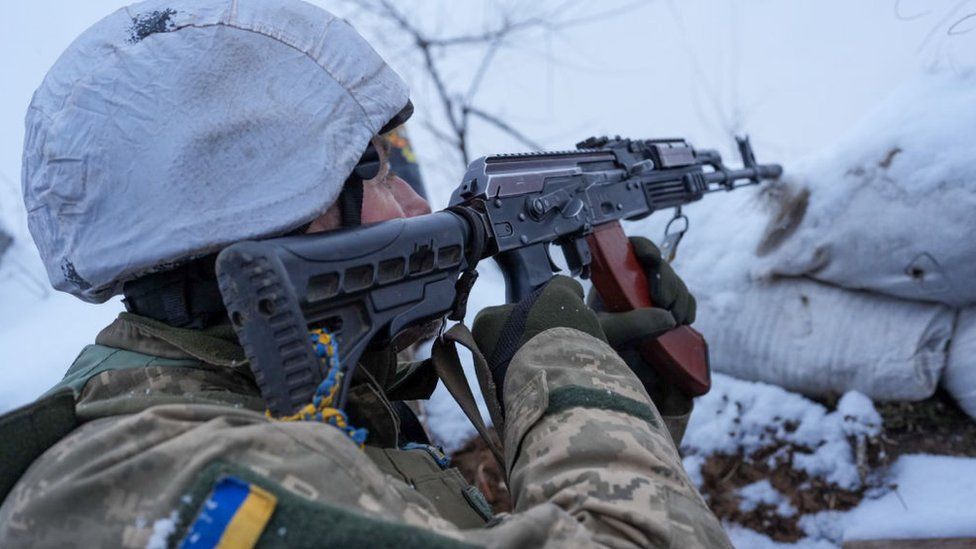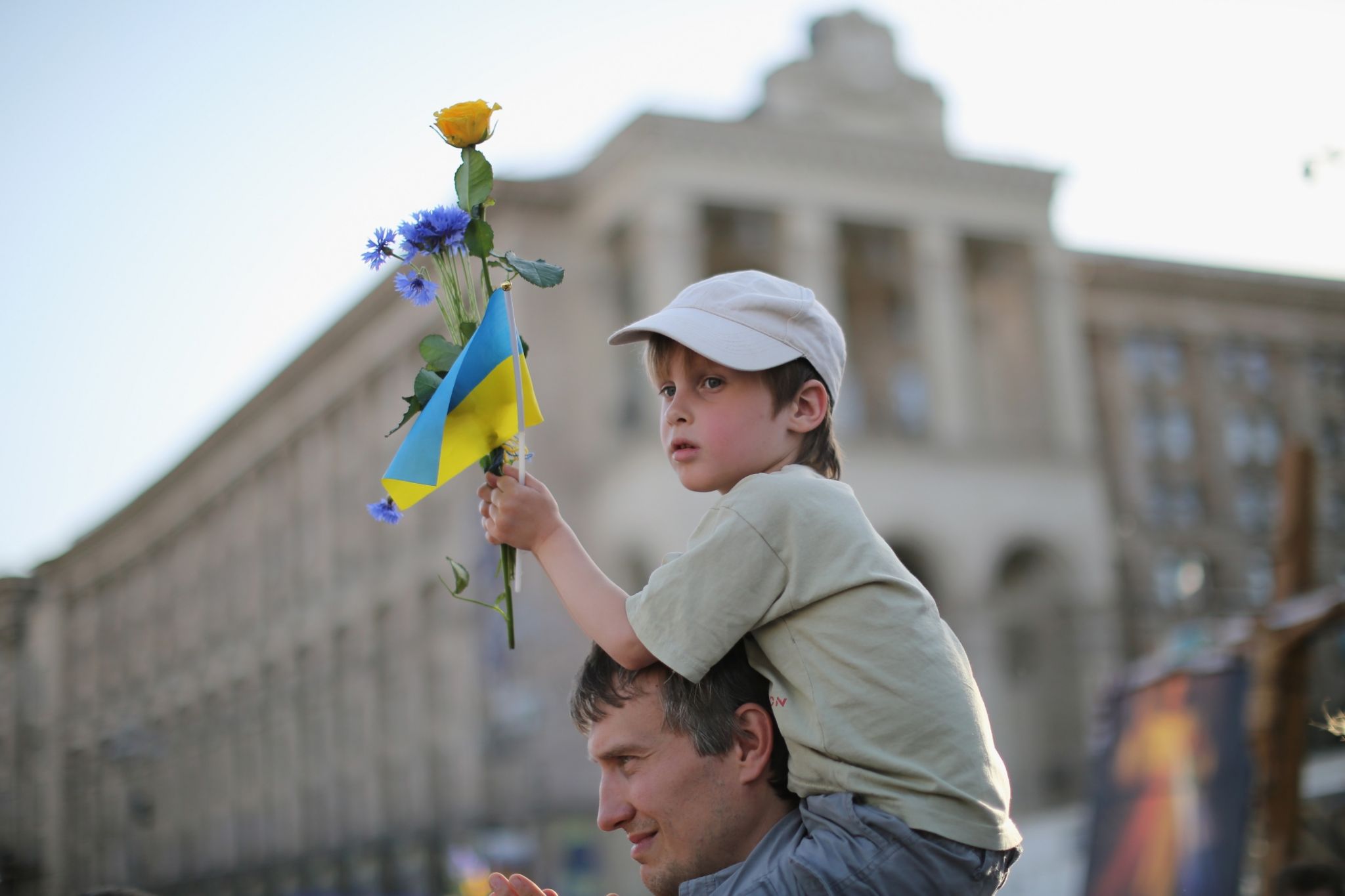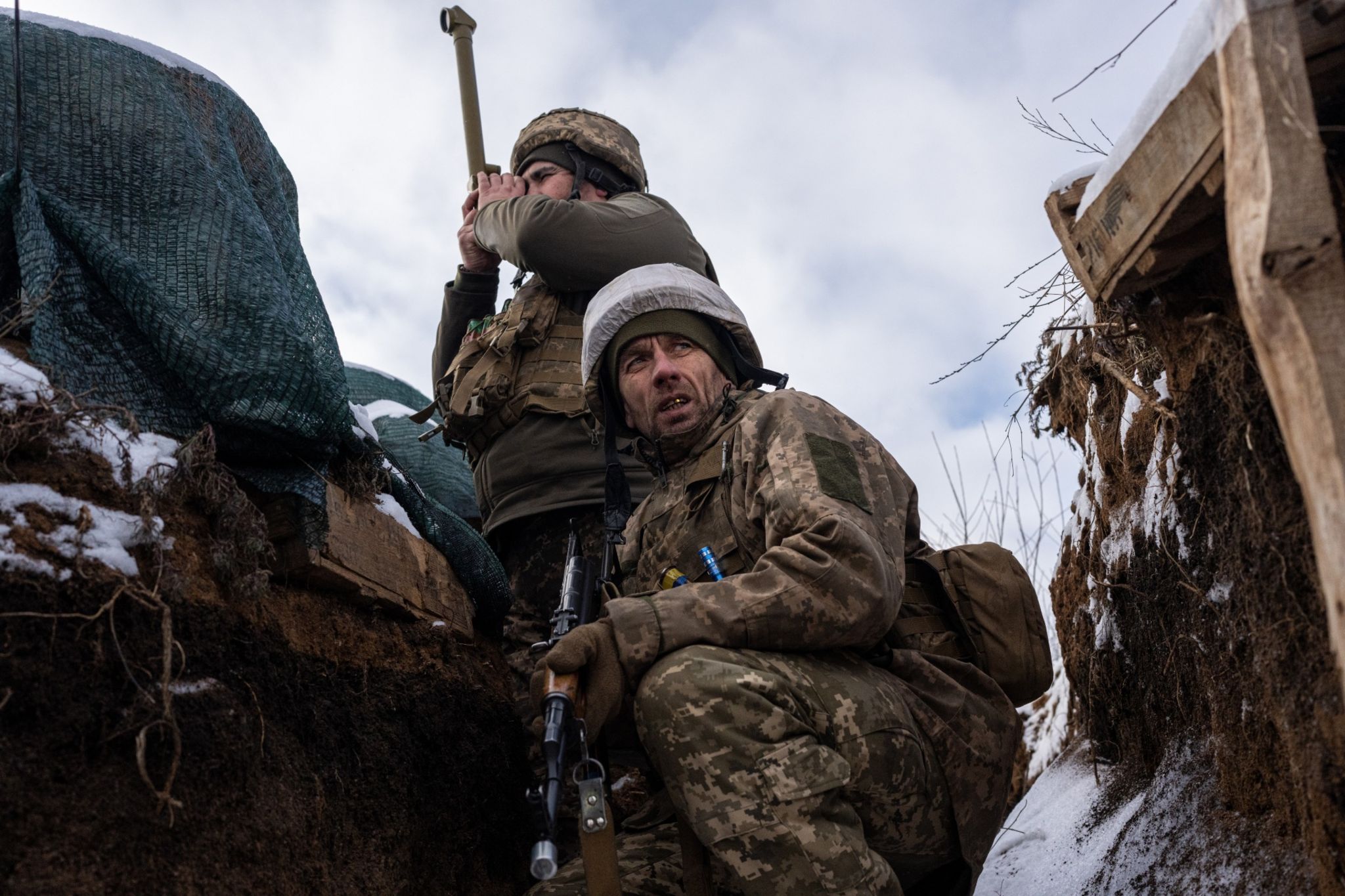Johnson: UK would boost Nato troops if Ukraine invaded

Britain is prepared to deploy troops to protect Nato allies in Europe if Russia invades Ukraine, Boris Johnson has said in a Commons statement.
The prime minister warned that President Putin would face “ferocious” Ukrainian resistance and “many Russian mothers’ sons will not be coming home”.
The UK and its allies would also respond swiftly and “in unison” with “severe” economic sanctions, he added.
Russia, which denies plans to invade, has built up troops at the border.
Some 100,000 Russian soldiers have been deployed.
The US has put 8,500 troops on alert to deploy at short notice, which Russia said caused it “great concern”.
Members of the Nato alliance, including Denmark, Spain, Bulgaria and the Netherlands, are sending more fighter jets and warships to Eastern Europe to bolster defences in the region.
In a statement made just hours after the announcement of a police probe into No 10 lockdown parties, Mr Johnson said: “The British Army leads the Nato battle group in Estonia and, if Russia invades Ukraine, we would look to contribute to any new Nato deployments to protect our allies in Europe.”
On sanctions, he said he and leaders of the US, France, Germany, Italy, Poland and the EU had agreed they would impose “co-ordinated and severe economic sanctions heavier than anything we have done before against Russia”.
“And we agreed on the necessity of finalising these measures as swiftly as possible in order to maximise their deterrent effect,” he added.
“We’ve already declassified compelling intelligence, exposing Russian intent to install a puppet regime in Ukraine.
“And we will continue to disclose any Russian use of cyber attacks, false flag operations or disinformation.”
Mr Johnson said the freedoms gained in Europe since the fall of the Berlin Wall must be maintained.
He said Russia was threatening to place a “gun to Ukraine’s head” but he still believed a diplomatic solution was possible.
Britain already leads a battlegroup in Estonia of around 1,000
Since 2015, the UK has rotated dozens of troops to Ukraine to help train their armed forces. And in the past week the UK has been willing to supply Ukraine with lethal aid – light anti tank weapons along with around 30 specialist troops from the Army’s new Ranger Regiment.
In the words of one foreign-based diplomat, the UK’s response has been “more muscular” than many Nato allies. The rhetoric and warnings from UK ministers have also been stronger than most.
Some may interpret tough words and actions as a distraction from domestic political difficulties. But in reality the UK has taken a more robust response to Russia ever since the Salisbury poisoning.
Think of the decision last summer to send a Royal Navy Warship, HMS Defender, to deliberately sail within Crimea’s territorial waters – much to the anger of the Kremlin.
So it is not a surprise that Britain is offering to do more to defend both Ukraine and its Nato allies.
But Nato is an alliance – and reinforcing its eastern allies will not be a unilateral decision. The options include the possibility of putting forces into Romania and Bulgaria.
France has already indicated that it is willing to help out. Britain and the US are seen as two other potential countries who could help bolster the defences. Defence Secretary Ben Wallace is set to hold talks at Nato HQ in Brussels over the coming days, about possible options.
Viral videos, stoicism and stockpiling on Ukraine’s uneasy borders

On one side, an estimated 100,000 Russian soldiers have now been deployed to Ukraine’s border. On the other, the US along with several Nato countries have begun to send millions in military aid. But what do Ukrainians make of it all?
This week a video went viral in Ukraine, of an older man, possibly in his 50s, speaking with heartfelt stoicism that he was ready to defend his family and his country from any potential Russian invasion.
“I’ll take a gun and I’ll go off to fight. I’m ready to taste the earth,” he told the TV crew from the Russian-speaking TV news channel, Current Time.
He went on to describe how his contingency plan is already in place and that after taking his family to their summer house he would return to the city of Kharkiv and take up arms.
Situated less than an hour’s drive from the Ukrainian-Russian border, and with thousands of Russian troops currently positioned just over the border, many commentators including Ukrainian President Volodymyr Zelensky have warned of the possible threat to the majority Russian-speaking city of Kharkiv.
Violence in the east
Far from the shelling and the harsh conditions of the trenches, for people living in the capital city of Kyiv, many say it’s like living with a split personality.
One minute you’re googling your nearest air raid shelter, the next, it’s life as normal with shoppers out in the streets and packed bars on a Friday night. There is renewed fear of course, but after nearly a decade of constant conflict in the east, many Ukrainians say they have learnt to live with the lack of security.
“We Ukrainians are probably the most hardened nation in Europe due to the constant threat from Russia on our borders,” says 44-year-old Fedir Balandin, an entrepreneur from Kyiv. He owns one of the oldest bars in the city centre as well as a travel agency.
He describes his state of mind as “determined readiness” for whatever happens next, whether it’s contributing money or supporting the army. Like all his friends and customers, he says, they are ready to defend their country.

Russia denies it is planning any invasion, but it has seized Ukrainian territory before and with an estimated 100,000 troops deployed near its borders, it’s understandable that people are nervous.
Even the minority of Ukrainians who are pro-Russian, many of them elderly and who hold a nostalgia for the former Soviet Union, don’t want an escalation of the violence after eight years of conflict.
Unease in the capital
Far from the shelling and the harsh conditions of the trenches, for people living in the capital city of Kyiv, many say it’s like living with a split personality.
One minute you’re googling your nearest air raid shelter, the next, it’s life as normal with shoppers out in the streets and packed bars on a Friday night. There is renewed fear of course, but after nearly a decade of constant conflict in the east, many Ukrainians say they have learnt to live with the lack of security.
“We Ukrainians are probably the most hardened nation in Europe due to the constant threat from Russia on our borders,” says 44-year-old Fedir Balandin, an entrepreneur from Kyiv. He owns one of the oldest bars in the city centre as well as a travel agency.
He describes his state of mind as “determined readiness” for whatever happens next, whether it’s contributing money or supporting the army. Like all his friends and customers, he says, they are ready to defend their country.
Source: https://www.bbc.com/
https://www.bbc.com/news/uk-60123328
Admin: https://theoctavenine.com/
Comments
Post a Comment